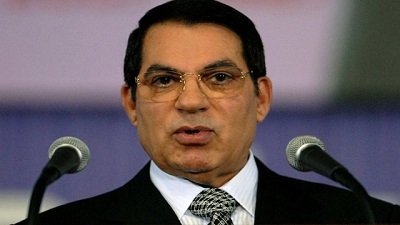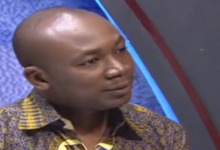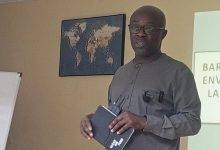
Former Tunisian President Zine El Abidine Ben Ali has died in exile in a hospital in Saudi Arabia after a conflict with a disease.
Mounir Ben Salha, a lawyer for the former Tunisian president, confirmed on September 12 that his client had suffered a health crisis that obliged him to be hospitalised.
Born on September 3, 1936, Zine El Abidine Ben Ali served as President of the Republic of Tunisia from November 7, 1987 to January 14, 2011, and is the second president of Tunisia since its independence from France in 1956 after Habib Bourguiba.
Zine El Abidine was appointed prime minister in October 1987 and then took office a month later in November 1987 in a bloodless coup, declaring that President Bourguiba was incapable of taking office.
He was re-elected by an overwhelming majority in all presidential elections, the latest of which was on October 25, 2009.
Ben Ali, 83, has been living in Riyadh since he was ousted in 2011 in a popular uprising against his 24-year rule.
On January 14, 2011, one month after nationwide protests against him, Ben Ali fled to Saudi Arabia with his wife Leila and their three children.
He has since faced a range of charges in Tunisian courts, and has been sentenced to life in multiple trials, including for theft and inciting violence.
The reports of Ben Ali’s death come as Tunisia gears up for the country’s second presidential election since Ben Ali was ousted.
It follows the death of Tunisian President Beji Caid Essebsi at the age of 92 in July.
On Thursday, Tunisia’s prime minister said Ben Ali’s death could mean he would allow his body to be flown home.
“I will give my green light for the body’s return. It’s a humanitarian case. If he’s dead, his body can return to his country like any other Tunisian,” Youssef Chahed said late Thursday on Hannibal TV.
“If his family wants his body to be flown home to be buried here, I give my green light,” added Chahed, who is also a candidate in Tunisia’s presidential election. -Aljazeera
A presidential candidate in Tunisia who reached the final stage of the election is set to remain in custody after failing to win an appeal to be freed.
Nabil Karoui, 56, was detained last month on charges of money laundering and tax fraud, which he denies.
The media mogul was still able to stand despite his arrest, but he was not allowed to vote. He reached the run-off vote which is expected next month.
On Wednesday, a judge refused to rule on whether or not he would be released.
The judge said the matter was not in his jurisdiction. It is the third time he has had an appeal turned down.
It means Mr Karoui, who began a hunger strike earlier this month to demand his freedom, will remain in jail.
His lawyer, Kamel Ben Messoud, told AFP news agency his client would challenge the court’s decision.
Mr Karoui has never held political office. He founded a charity focused on fighting poverty and that issue has been a central theme of his campaign.
But critics have accused him of using the charity and his TV channel to further his political ambitions.
Mr Karoui and another political outsider, Kais Saied, saw off a crowded field of 24 other candidates in the first round of voting on Sunday.
As no candidate won an outright majority, they will both advance to the run-off. The exact date is yet to be announced.
The result marked a blow for Tunisia’s political establishment, including for Prime Minister Youssef Chahed and former interim President Moncef Marzouki, who both failed to progress.
The winning candidate will be appointed to office for a five-year term. Tunisia’s president has control over defence, foreign policy and national security. The prime minister, chosen by parliament, is responsible for other portfolios.
Separately, parliamentary elections are also scheduled to take place next month.
This election is the second free presidential poll since the 2011 uprising that toppled ex-President Zine al-Abidine Ben Ali and sparked the Arab Spring.
It was brought forward after the death in July of the country’s first democratically elected president, Beji Caid Essebsi, who took office in 2014.







